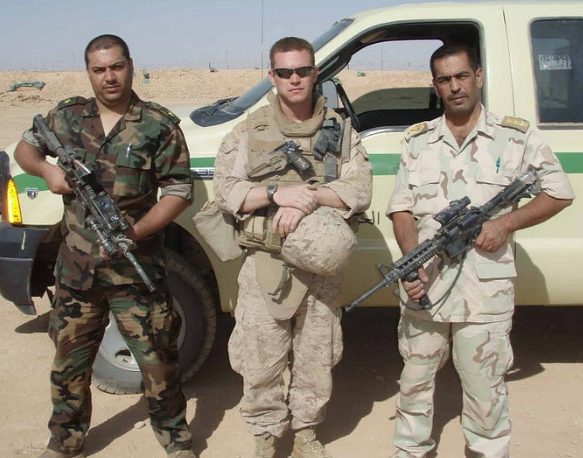My Most Valuable Startup Skill Wasn't Code. It Was Something I Learned in the Marines

I was a beginner coder struggling with imposter syndrome. Then I realized my true value wasn't in the skill I was trying to learn, but in the one I had already mastered.
For the first year of my journey into the tech world, I felt like an imposter.
I had made the deliberate choice to become a builder, to learn how to code from the ground up. I found a home at Geekdom, a co-working space in San Antonio that was a vibrant, chaotic hub of innovation. It was also, for a beginner like me, incredibly intimidating.
I was surrounded by a level of talent that felt alien. There were freelance coders who could spin up an app in a weekend, graphic designers who made magic with pixels, and aerospace engineers building actual rockets. There were people creating anything you could imagine with a 3D printer and founders inventing cryptocurrencies that I barely understood.
And then there was me. The coding challenges I was facing felt like climbing mountains, but for my peers, they weren't even speed bumps. I was a novice in a sea of experts, and I was constantly asking myself the same nagging question: Where do I possibly fit in here?
I was so focused on my weakness - my nascent coding ability - that I was completely blind to my strength.
That all changed when I met Mel Du.
Mel was a genius, plain and simple. He had the kind of intellectual energy that is both rare and magnetic, and we struck up an instant friendship. He was the founder of a company building a self-balancing wheelchair, a project that was technically brilliant and deeply inspiring.
One day, he told me he was preparing a pitch for a prestigious fellowship. He shared his presentation, and as I listened, something clicked. The technology was far beyond my comprehension. But the pitch, the story, the delivery - that was a language I knew intimately.
My time as an Officer in the Marine Corps had very little to do with software, but it had everything to do with communication. The ability to articulate a plan, to convey intent with absolute clarity, and to stand and deliver that message with conviction under pressure was not just a skill; it was a core survival mechanism. It was drilled into me from bootcamp to Officer Candidates School, reinforced by incredible mentors who forced me to rehearse mission briefs over and over until they were second nature.
Listening to Mel, I saw a gap. Not in his vision or his tech, but in the bridge between his brilliant mind and his audience. And for the first time since walking into Geekdom, I realized I could help.
"Do you want some help rehearsing?" I asked.
For the next few hours, and over the next couple of days, that's what we did. We didn't talk about the tech. We focused on the story. We practiced the delivery. We did the reps, over and over, just as I had done preparing for an operations order. Mel, being brilliant, absorbed it all instantly. In two days, he was delivering a world-class pitch.
In that small conference room, I finally found my answer. My most valuable contribution to this ecosystem wasn't going to be my code - not yet, anyway. It was my ability to help the builders become storytellers. It was my ability to listen, to provide feedback, and to stick around until they got it right.
That realization was a turning point. It was like a lightbulb turning on in a dark room.
I started volunteering as a mentor for 3 Day Startup, an organization that helps entrepreneurs launch companies in a weekend. I helped with pitch competitions at Geekdom, St. Edward's University, St. Mary's University, the University of Texas, and my own alma mater, Texas A&M.
This journey led me to a 3DS global roundup, where I met people like Cam Houser, one of the founders of the movement. I wasn't networking; I was contributing. I was in the trenches, doing the work, and the relationships followed naturally.
The irony was not lost on me. While I was slowly and painfully teaching myself to build applications, I was thriving by teaching others a skill I had learned in a completely different world.
That period of my life taught me a lesson that has become a core tenet of my career: Stop focusing on what you lack and start leveraging what you have.
Your unique background is never a liability; it is always your greatest asset. The skills you learned in a past life - the "non-obvious" skills - are often the very things that will make you stand out. They are the gaps in the market that you, and only you, are uniquely qualified to fill.
I never stopped my journey to become a builder. But I did stop feeling like an imposter. Because I finally understood that my past wasn't something to overcome; it was the foundation for everything I had to offer.